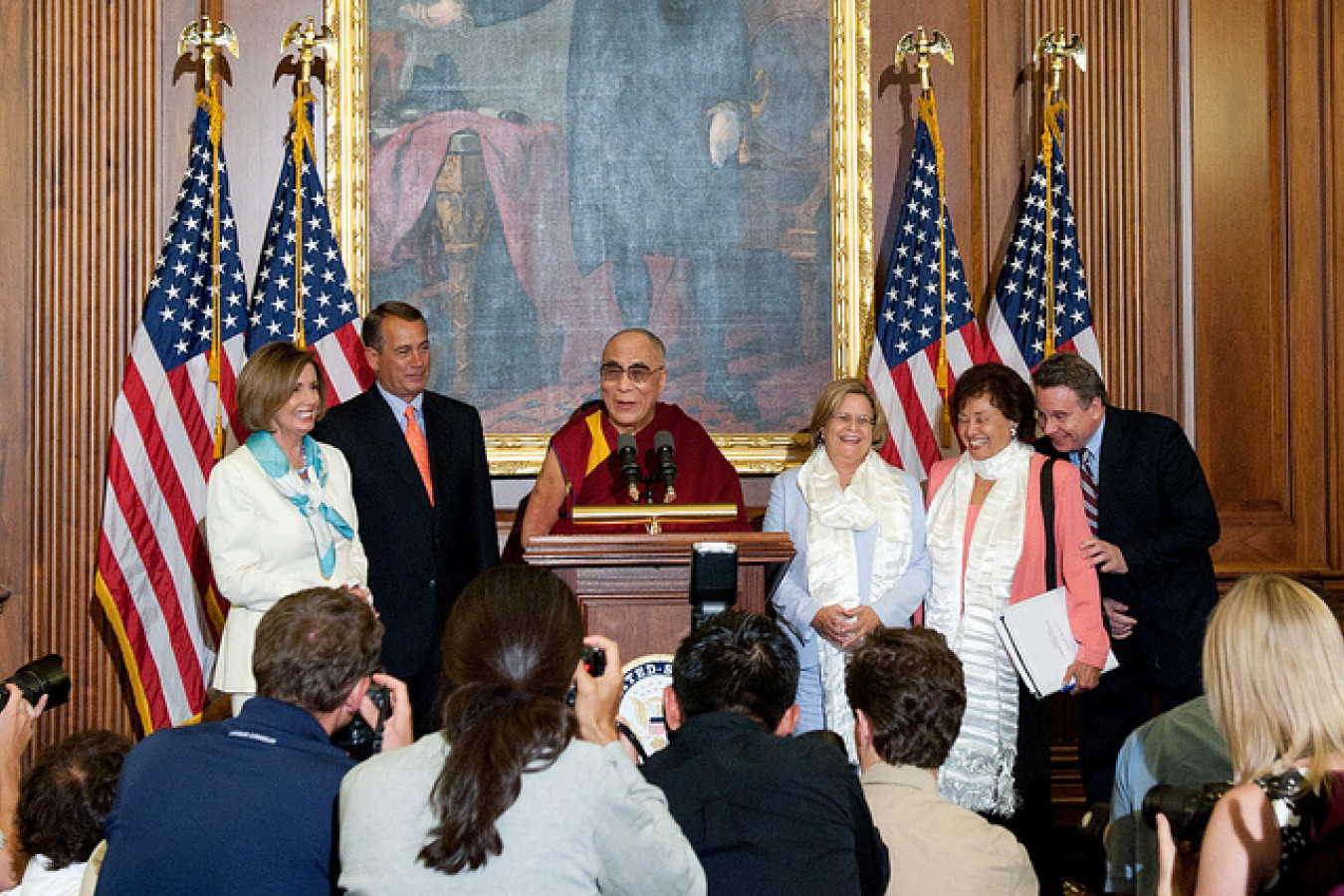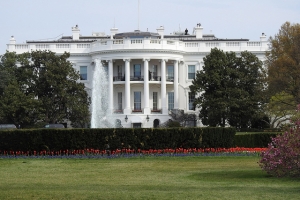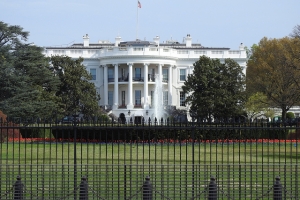Support migrant centric journalism today and donate

President Obama has used a speech in South Korea to call on the US Congress to pass immigration reform. The President was speaking at a naturalisation ceremony for members of the US military who were born outside the US.
Mr Obama said that the US must 'fix our broken immigration system' and attract 'the brightest and the best'. He urged Congress 'pass common sense immigration reform'.
The President said that 'The value of our immigrants to our way of life is central to who we are. It's part of our DNA; it's part of our creed'. He said that, in order to attract 'the brightest and the best 'we don't want to make [immigration] harder, we want to make it more sensible, more efficient'.
Naturalization ceremony
The President was speaking during an eight day trip to the Far East. He chose a naturalization ceremony for foreign-born members of the US military to emphasise the contribution that first generation immigrants continue to make to America.The President is no doubt frustrated by a lack of progress on immigration reform, one of his flagship policies for his second term; during the 2012 election campaign, he promised comprehensive reform of the US's 'broken' immigration system.
It is commonly accepted by both President Obama's Democratic Party and their opponents the Republican Party that the system is in dire need of reform.
Green cards
Each year over 1m people receive US permanent residence visas (known as 'green cards'). Only 6% of these are economic migrants arriving in the US intending to work.US businesses are constantly lobbying for more H-1B temporary work visas and more Employment Based (EB) green cards.
Both the US's main political parties, the Republicans and the Democrats, say that they want to reform the system but have been unable to agree about how it should be done.
Immigration policy divides the parties
In particular, the issue of what should happen to illegal immigrants divides the parties. To generalise, Democrats generally support the granting of an amnesty to most illegal residents which would allow them to 'come out of the shadows' and work legally.Many, but by no means all, Republicans would prefer instead to see illegal immigrants forced, or strongly encouraged, to leave the country.
In 2013, a group of eight senators, four Republicans and four Democrats, produced a draft piece of legislation known as the Border Security, Economic Opportunity and Immigration Modernization Act. The draft law, or bill, contained proposals for comprehensive reform of the entire immigration system.
Border Security Act
Its main provisions were- The creation of a 'pathway to citizenship' for most illegal immigrants without criminal records. Illegal residents could apply for a temporary resident visa. They would have to pay a $500 fine, learn English and pay back taxes. After a lengthy wait, perhaps 13 years, they could apply for permanent resident status and, thereafter, citizenship
- An increase in the annual number of H-1B temporary skilled work visas' from 85,000 to over 150,000. This figure could rise above 200,000 if demand was high for several years in a row
- Allowing all graduates from US universities with higher degrees to apply for green cards. There would be no cap on these applications. This would allow many more employment based immigrants to stay in the US
- Increasing spending on border security by $4.5bn over the next four years
- Abolishing country quotas for US employment based green cards.
The Border Security Act was passed by the Senate in June 2013. But, to become law, bills must be passed by both Houses of the US Congress; the Senate and The House of Representatives (known as 'The House').
Congress divided
The Senate has a small Democratic majority whereas the House has a small Republican majority. The House has not yet passed the Border Security Act and many commentators say that it is now unlikely that they will do so this year, if at all.Indeed, the Republican speaker of the House, John Boehner, has not even allowed the House to vote on the Act.
The reason for this is complex but there seem to be two main reasons;
- The extreme hatred that some right wing Republicans seem to have for President Obama; Immigration reform is an issue that has been loudly supported by the President and therefore, many Republicans oppose the reforms almost as a point of principle.
- The fact that the Republican Party is genuinely deeply divided on the issue of immigration. Mr Boehner is said to fear that, if he allowed a vote, his own party would be ripped apart by infighting.
Tea Party
Republicans in the House, particularly those associated with the radical Tea Party faction, have blocked dozens of bills since 2008. The Tea Party is a grass roots movement which has considerable influence in the Republican Party.Mr Boehner has repeatedly claimed that he wants to see immigration reform passed in 2014 but he continues to block a vote on the bill. It is not entirely clear why this is.
One theory is that Mr Boehner is scared of losing his job.
Primary elections
To be reselected as a Republican Party candidate, Mr Boehner, like other Republican incumbents, must first win a primary election against Republican challengers seeking to take his place. The rise of the anti-immigration, anti-tax, anti-'big government' Tea Party has forced many Republican candidates to oppose immigration to save their political skins.However, there is also a considerable body of support within the Republican Party which supports reform. For example, The US Chamber of Commerce, right-wing religious groups, industry lobbying groups and many other Republicans want the party to back reform.
This leaves Mr Boehner, like many of his colleagues, faced with a difficult balancing act as they attempt to please both sides of the immigration reform debate.
Republicans appease Tea Party
In an election year, as 2014 is, it is likely that many Republicans will err towards appeasing the vocal Tea Party activists. Tea Party members, after all, tend to vote in primary elections much more than more moderate Republicans which gives them a power over candidates which is out of proportion to their numbers.Polling shows that a majority of Republicans approve of the 'pathway to citizenship' for illegal residents but the Tea Party does not. By voting in primaries in disproportionately high numbers, the Tea Party has managed to ensure that their view prevails among Republican representatives at Washington.
This means that Republicans are unlikely to support any legislation which would introduce a pathway to citizenship. They fear that voicing that support would make them a target for deselection. Some 140 Republican Congressmen and women already claim links to the Tea Party.
Boehner mocks opponents of reform
However, on Thursday 24th April, Mr Boehner seems to have chosen which side of the fence he will sit. At an election meeting in in Madison Township in his home district in Ohio he mocked Congressional opponents of reform.He told his audience 'Here's the attitude [of those opposing reform]. "Ohhh! Don't make me do this. Ohhhh! This is too hard!" He continued "We get elected to make choices. We get elected to solve problems and it's remarkable to me how many of my colleagues just don't want to'.
Mr Boehner said 'I've had every brick and bat and arrow shot at me over this issue just because I wanted to deal with it'.
Winteregg
Mr Boehner faces three challengers at his primary for reselection as Republican candidate. One of these is Joe Winteregg, 32, a Tea Party backed candidate who will, no doubt, leap on Boehner's words and use them to whip up right-wing support to de-select the speaker.But, perhaps Mr Boehner is not too worried. At the last primary, he won 85% support for reselection. He has also raised $5.5m in campaign funds compared to Mr Winteregg's $43,000.
Whatever the result in Mr Boehner's primary, the Republicans are facing a crisis which could severely limit the chances of there being another Republican president.
Republicans 'the white party'
Republican support is increasingly drawn only from the US's white population. At the same time as the party loses what support it had among Latino, black and Asian voters, these minorities are growing in size.Unless it can reach out to the minorities, pollsters say that the Republicans will find it increasingly difficult ever to regain the presidency.
However, the party's uncompromising stand on immigration reform is alienating the minority voters it needs to attract if it is to regain the presidency. About 42% of Latino voters supported George W Bush in the 2000 presidential election.
'Self-deportation' alienated Hispanic voters
In 2012, only 27% of Latinos supported the Republican challenger Mitt Romney who said that, if elected, he would introduce 'self-deportation' policies to encourage illegal residents to leave the US voluntarily.Sooner or later, the Republican Party, like Mr Boehner, will have to decide whether it can continue to block immigration reform.
If you would like to apply for a visa WorkPermit.com can help. WorkPermit.com is a specialist visa consultancy with 25 years of experience dealing with visa applications. We can help with a wide range of visa applications to your country of choice. Please feel free to contact us for further details.





















